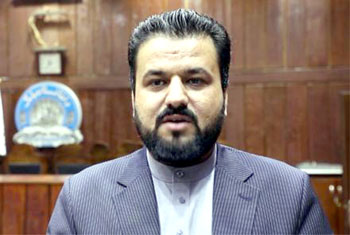The country’s Central Bank on Tuesday announced that money transfers overseas are now possible as it has lifted all restrictions on Afghan banks, a move that was appreciated by the business community, but they said they hope the promise will be fulfilled.
A Central Bank spokesman, Sabir Mohammad, said all banks have been instructed to facilitate currency transfers for businessmen and investors “without any delay.”
The move comes after a long pause in money transfers and withdrawals from the country’s banks following the fall of the previous government in last year’s August.
Investors said the restrictions on money transfers were the main obstacle for international transactions and their partners abroad.
Baba Gul, the owner of a company in Kabul, said, “We have ordered goods in China, but our operations have stopped because we could not transfer money for it.”
“We hope this issue is addressed because there was an earlier announcement of such nature, but then we found out that we were still unable to transfer money outside the country,” said Mohammad Karim Azimi, member of the Afghanistan Chamber of Industry and Mines.
A spokesman for the Central Bank, Sabir Momand, reported on the cash-aid to the Afghanistan International Bank (AIB).
“These humanitarian assistances had a positive impact on stabilization of the Afghan currency,” said Sabir Momand, a spokesman for the Central Bank.
Economists believe that the import of cash to Afghanistan can prevent the cash crisis in the Afghan market.
“The cash aid of the World Bank to Afghanistan will help with stabilization and cause preservation of the Afghan currency against foreign currencies. It can also help circulation of money in the markets,” said Shakir Yaqobi, an economist.
Some economists believe that the cash aid by the donors must be invested in economic projects.
“If the money is invested in economic and agriculture projects in the current situation, it will be very effective,” said Ahmad Munib, an economist.
An official from the Afghanistan Chamber of Commerce and Investment (ACCI) also confirmed that the restriction on money transfers has been a major issue for the business community in the last seven months.
“There is money in the banks but investors should be allowed to withdraw the money,” said Khan Jan Alokozai, an ACCI member. “We even couldn’t pay our electricity bills and were forced to pay it in cash.”
Figures by the National Statistics and Information Authority show that the trade deficit in the country has reached 80% due to the hardships the business community is faced with, especially money transfers.—Tolonews










